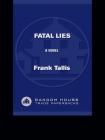Fatal Lies Frank Tallis (best fiction books to read txt) 📖

- Author: Frank Tallis
Book online «Fatal Lies Frank Tallis (best fiction books to read txt) 📖». Author Frank Tallis
As the evening progressed, the conversation ranged over an extra ordinarily broad range of topics: Amelia's research under the supervision of Landsteiner, King Acxitl, dream interpretation, the hallucinatory properties of certain desert mushrooms (an example of which, curiously, Randall happened to have in his pocket), Nietz sche's concept of eternal recurrence, and the syncopated music of the black people of New Orleans (which Randall obligingly whistled while tapping his foot).
Discussion of rags and ragtime led, by some oblique conversational maneuvering, to the waltz, which prompted Amelia to enthuse— at some length—about the ball she had attended with Liebermann. Randall—to Liebermann's surprise—expressed much interest (perhaps anthropological) in Fasching, and the young doctor found himself offering to take both brother and sister to the clock makers’ ball, which was scheduled to take place the following week.
When Liebermann finally took his leave, he felt quite dazed. It had turned out to be an evening very different from the one he had expected. He walked the streets for some time—smoking and thinking—before returning home. When Miss Lyd gate had said goodbye, she had reached out and gently touched his hand. After taking a few steps he had looked back, and the image of her standing in the doorway had impressed itself on his memory. Her white dress had billowed in the breeze, and strands of her spun copper hair had streamed across her face. She had pushed them aside, revealing those arresting eyes. The smile that had been fleetingly present throughout the entire evening was gone, and her expression was intense, penetrating—as if she were looking directly into his soul. Lieber-mann identified the thought as fanciful, but nevertheless felt a shiver of unease.
He had been so very wrong about Miss Lyd gate. Indeed, on reflection, Liebermann concluded that in matters of the heart he had something of a gift for being wrong.…
69
THE SILENCE THAT PREVAILED in the commissioner's office was absolute. It was the kind of stillness that Rheinhardt associated with mortuaries and provincial churches in winter: an icy, unyielding soundlessness—as obstinate as frozen loam. He wanted to speak, but whenever he tried, his courage failed. This silence demanded the utmost care—and if he broke it carelessly, the consequences would be catastrophic.
The commissioner had not moved for some time. His eyes were fixed on a folder occupying the pool of light beneath his desk lamp. It contained Rheinhardt's supplementary report on the murder of Thomas Zelenka. Brügels hand crept into the illuminated circle like a grotesque insect emerging from beneath a stone, the first and second fingers raised and testing the air like feelers. Sustaining a convincing illusion of self-determination, Brügels hand halted before touching the folder—as if it had detected something repellent or dangerous therein. The commissioner's profound, contemplative silence seemed to presage alarming possibilities: not only the prospect of punishment, but actual expulsion from the security office.
Rheinhardt had always been a policeman and could imagine no other life. What else could he do? He tried to console himself with the thought that he had acted conscientiously. But, in truth, he knew that he had been impulsive, naïve, and somewhat vainglorious. Now he would suffer the consequences.
Brügel's hand moved forward and his raised fingers dropped down on the folder. The inconsequential beat this movement produced sounded—to Rheinhardt—like the boom of a ceremonial drum: an invitation in some ancient rite to ritual slaughter.
“You disobeyed my orders,” said the commissioner, in a low, gravelly voice. “I distinctly recall telling you that as far as I was concerned the Saint Florian's case was closed.”
“Yes, sir,” said Rheinhardt. “You did. However, with the greatest respect…” I have nothing to lose, now, he thought. I might as well defend myself. Rheinhardt took a deep breath. “Sir, I hold the rank of detective inspector. Although it is my duty to obey you—my commanding officer—it is also my duty to serve the Justizpalast, the people of Vienna, and, ultimately, His Majesty the emperor.”
Rheinhardt glanced up at the portrait of Franz Josef—only just visible in the reflected lamplight—and fancied that he saw a glimmer of approval in the old man's expression. “I believe,” he continued, “that I acted correctly and in accordance with the obligations and necessities of my office.”
The commissioner's eyes narrowed and his hand clenched into a tight fist—the knuckles rising up beneath his leathery skin to form a bloodless ridge. On his temple a knotty blood vessel pulsed with febrile malevolence. The commissioner seemed to be on the brink of exploding with rage when—quite suddenly—his expression changed. He sighed, his shoulders fell, and his clenched fist slowly opened.
“My nephew,” said Brügel hoarsely, “has been disgraced.” Rheinhardt did not know how to respond. Their gazes met, and the commissioner continued. “His mother was so proud of him. This will break her heart.” As on the previous occasion when Brügel had mentioned his sister, tender sentiments seemed to diminish him.
“I am very sorry, sir,” said Rheinhardt sincerely.
The commisioner opened his drawer and removed a letter, which he placed carefully on the folder containing Rheinhardt s report.
“From Kiefer,” he said softly. “It does not exonerate him… but it may go some way toward helping us to understand his conduct. You see, the boy claims to have been influenced by certain teachings promulgated by the masters—Eichmann, Gärtner, Osterhagen—a philosophy of power. Young minds, Rheinhardt. They are so malleable— so easily corrupted.… I have already spoken to the minister of education—who has promised to attend the next meeting of the board of governors.”
The commissioner fell silent again.
“Sir,” said Rheinhardt, “am I to be disciplined?”
The commissioner grunted and shook his head.
“Thank you, sir,” said Rheinhardt. Not wishing to tempt fate, he stood up and clicked his heels. “Should I report to Inspector von Bulow tomorrow morning?”
“No,” said the





Comments (0)